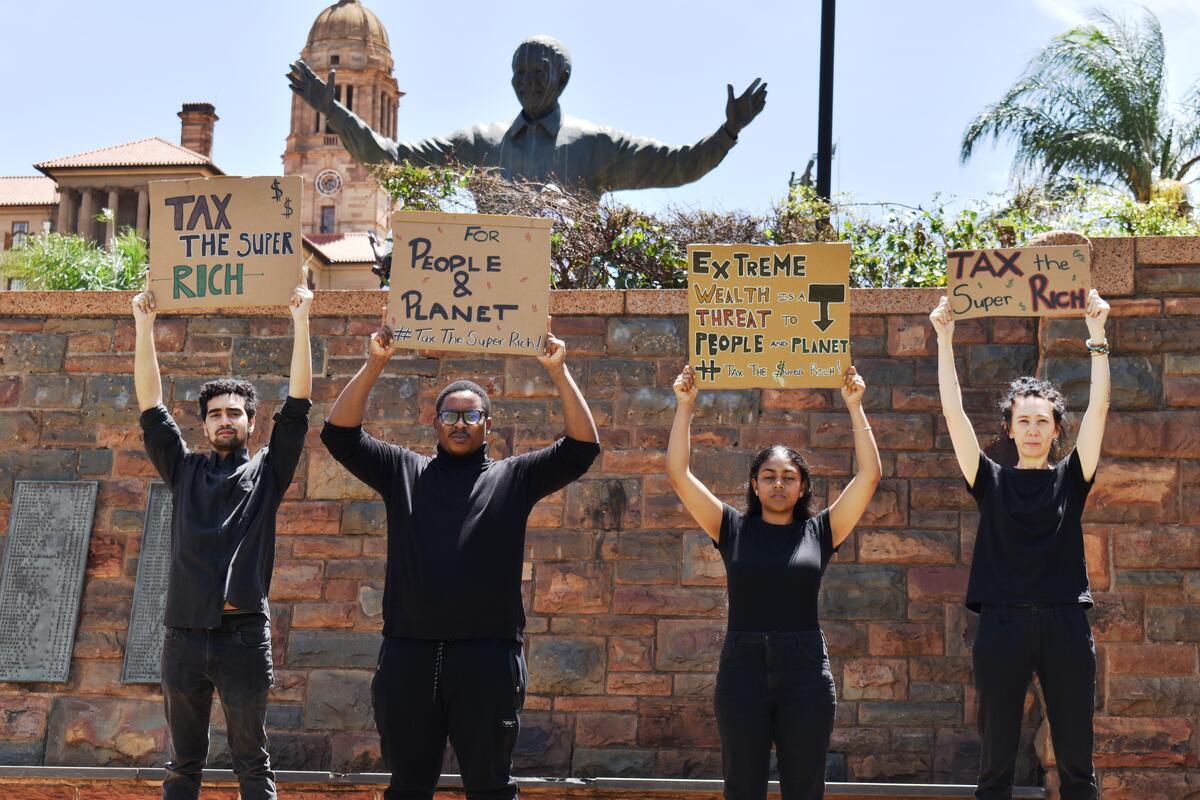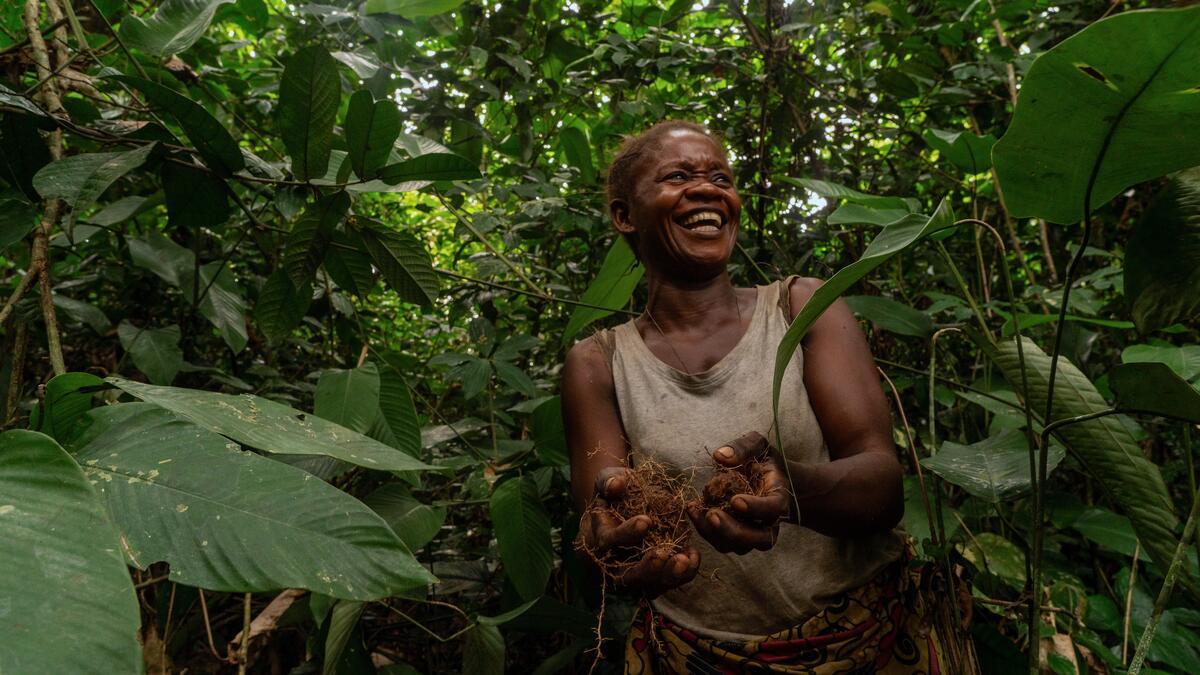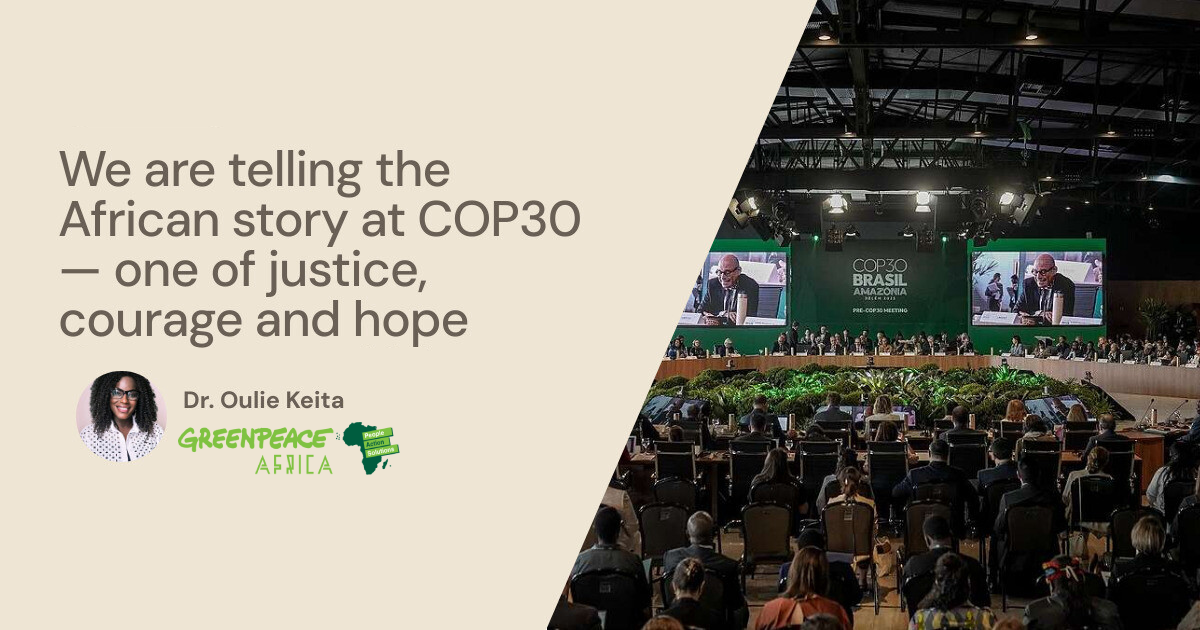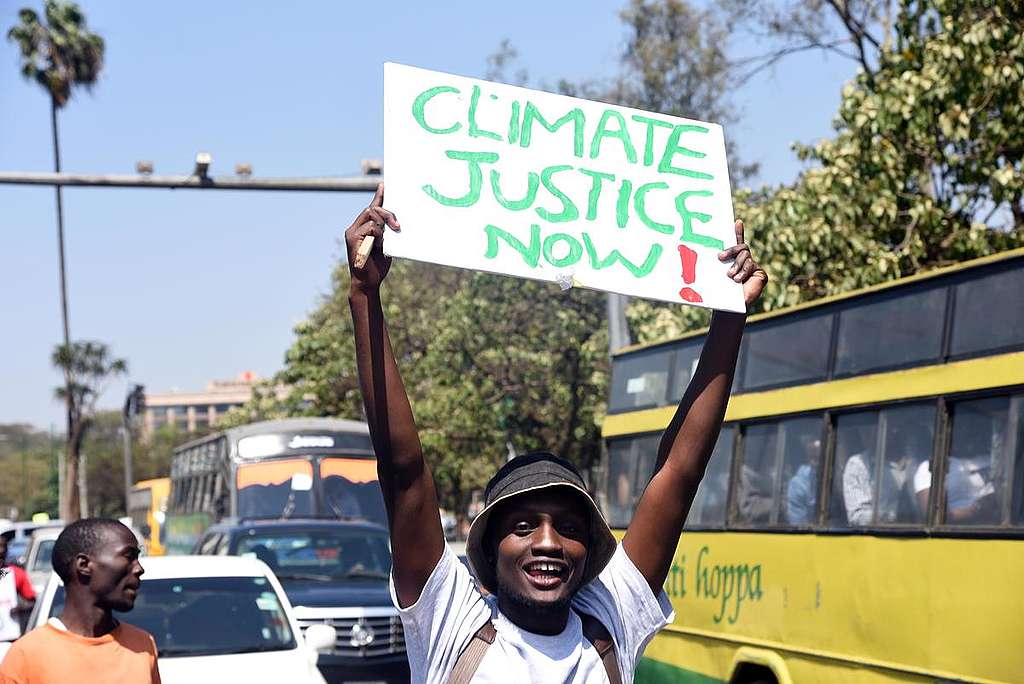
What is COP26?
COP26 is the 26th “Conference of the Parties”, where member countries come together, united in their commitment to battle the climate crisis.
These conferences take place every year, with the exception of 2020 due to the COVID-19 pandemic. This year, COP26 will build on the commitments made during COP15 in Paris in 2015, when participating countries (all members of the United Nations Framework Convention on Climate Change, or UNFCCC) made the important decision to acknowledge climate change as an imminent threat by agreeing to co-operate to limit the global temperature rise to maximum of 0.2°C. They also made a firm commitment to go even further by aiming for a target much closer to 1.5°C by 2030, compared to pre-industrial levels. This is known as The Paris Agreement, which also strives to reduce greenhouse gas emissions to net zero by 2050.
COP26 will be a decisive moment for the whole world. The decisions made during COP15 did not do enough to reach the target set out. Member countries’ greenhouse gas emissions, known as Nationally Determined Contributions, or NDCs, are still exceeding that which is required to limit global warming to a level that will not cause catastrophic loss of natural habitats, unimaginable natural disasters, famine, drought and suffering to people, plants and animals.
When and where is COP26?
COP26 is held in Glasgow, Scotland, and runs for 12 days from 31 October to 12 November.
Why does COP26 matter to Africa?
COP26 is an important call-to-action for nations all over the world to wake up and realise that climate change is a real threat to people, animals and plants, and is wreaking havoc across the globe by destroying sensitive ecosystems and biodiversity. But why does COP26 matter to Africa and Africans?
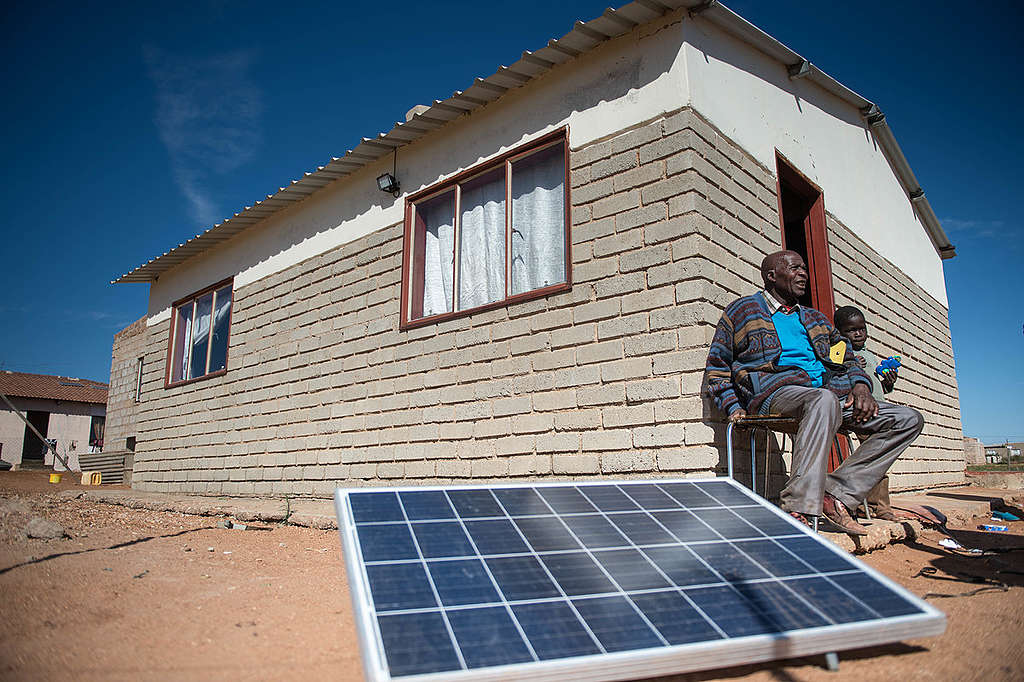
- COP26 can help fight climate change in Africa
On 2 November, an historic declaration was announced at COP26 that aims to help South Africa wean itself off dirty coal, invest in renewable energy and repurpose existing electrical infrastructure to harness clean energy. COP26 member states the United Kingdom of Great Britain and Northern Ireland, the United States of America, the Republic of France, the Federal Republic of Germany, the European Union and South Africa signed the Political Declaration on the Just Energy Transition in South Africa. This declaration means that a total of $8.5 billion will be contributed by COP26 member states to facilitate South Africa’s move to renewable energy and reduced fossil fuel emissions by shutting down and repurposing Eskom’s dirty and unreliable coal-fired power stations, creating more jobs in the renewable energy sector and, perhaps most importantly, invest in renewable energy infrastructure to combat climate change.
COP26 realises that renewable energy is the future across Africa and the rest of the world. Many peri-urban and rural communities struggle daily with inadequate access to ageing, failing electrical infrastructure and have to rely on dirty fossil fuels like kerosene and diesel to keep the lights on and cook food. Not only are these fuels toxic to human health, they are also expensive and the cause of greenhouse gas emissions, which contribute to our warming climate. The COP26 just energy transition partnership declaration will play a crucial role in facilitating and financing the rollout of renewable energy sources such as solar in these communities and thus afford a better quality of life to African citizens while also fighting climate change.
This declaration will provide a template for rolling out similar programs across other developing nations.
Africa is reeling from the effects of a changing climate. ADD YOUR VOICE to the thousands already appealing to African leaders to declare a climate emergency.
- COP26 can help save African forests
The actions taken at COP26 in Glasgow can help save the Congo Basin Forest. These vast stretches of tropical rainforest cover over 170 million square hectares in Central Africa, and provide food, water, shelter and medicine to many indigenous people. They are also a haven for biodiversity and are home to many threatened plants and animals found nowhere else in the world. Unfortunately, they are being mismanaged and plundered by ruthless government ministers who sell off vast tracts of land for ‘conservation’ purposes to private entities who are not qualified to do these important jobs. Added to this, industrial logging is effectively destroying 374,000 hectares of this precious resource per year.
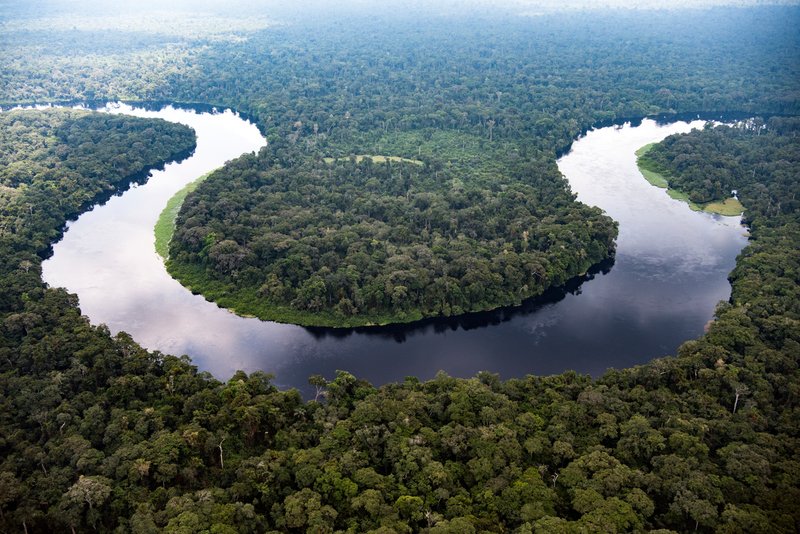
The peatland forest in the Salonga National Park in the Democratic Republic of the Congo is estimated to contain 3 years worth of total global fossil fuel emissions trapped underground. The COP26 Glasgow Leaders Declaration on Forests and Land Use is designed to protect these vital resources. Image: Greenpeace.
COP26 can help protect the Congo Basin Forests. These biodiverse hotspots are critical weapons in the fight against climate change as they trap excess carbon in the atmosphere and store it in peatlands. On 2 November, the COP26 Glasgow Leaders Declaration on Forests and Land Use was signed, committing over 110 countries to the protection of the earth’s vital forests. Perhaps most excitingly, over $1.5 billion was pledged by governments and private enterprises as part of the new Congo Basin Pledge. This important initiative by COP26 members is an acknowledgement of the unique value of the Congo Basin Forests and their role in safeguarding invaluable plants and animals. It is also a big stride forward in enabling local communities to stand up and fight for the forests that they have called home for generations. The COP26 Congo Basin Pledge will hopefully play a role in slowing climate change as these beautiful forests are left to thrive in peace while also protecting and empowering indigenous people through job creation.
SIGN THE PLEDGE to fight industrial logging and agribusiness in the Congo Basin Forest!
- COP26 can promote sustainable commodity production and climate resistant farming practices in Africa
COP26 has 4 main pillars of action:
- Reduce and ultimately eradicate fossil fuel emissions to fight climate change
- Source financial support to retrofit global economies that have been relying on fossil fuels
- Collaborate internationally to battle a changing climate
- Assist communities across the world in developing sustainable farming methods that are also resistant to climate change.
It is this last pillar that the Forest, Agriculture, Commodity and Trade Dialogue (FACT), part of COP26, is activating. Through partnerships with governments, FACT builds farming practices that are sensitive to the environment, result in the production of sustainable commodities and provide employment activities for local communities across different sectors.
FACT aligns with COP26 by working with people and organisations on the ground in countries that have been exploited by corporate interests for many years to produce sustainable commodities, which are products that are produced in such a way that they do not cause harm to people or the environment. This is a big deal, as global demand for products like palm oil and cocoa for the production of chocolate has soared over the last 10 years, and areas like the Congo Basin and countries like Ghana have suffered the consequences. Governments and corporations work together to drive deforestation and encourage inhumane working conditions in their hunger for these highly desired products. A changing climate means unpredictable rainfall, so farmers are increasingly pressured to produce more by clearing vast tracts of forest. With the support of COP26, FACT is piloting many different initiatives like smart pruning that means cocoa farms yield more and do not need to be expanded deeper into forests.
COP26 is diversifying employment beyond the cocoa industry in Ghana so that farmers are no longer solely reliant on a single crop to provide for their families.
Cameroon’s national parks and local Bagyeli people are being threatened by greedy businesses destroying land and forests to plant palm oil plantations. TELL PRESIDENT PAUL BIYA to stop the madness and protect his country and its people.
How does COP26 affect me as an African?
Climate change is everyone’s problem, but Africa stands to lose the most should it be allowed to proceed unchecked. Throughout the continent, women and children are disproportionately affected by the ravages of climate change, even though they are least responsible for it.
Part of COP26’s goal is to protect 30% of land and 30% of the oceans by 2030. With its vast stretches of coastline, verdant forests and grasslands, and unique species of plants and animals, there is no plan to battle climate change that can succeed without involving Africa.
Find out more about why COP26 matters to Africa and Africans and follow the latest news and updates HERE.
Semantically related keywords: Congo Basin, Congo Basin Pledge, Deforestation, Climate change, Renewable energy, The Paris Agreement, COP15, FACT, Sustainable commodities,

